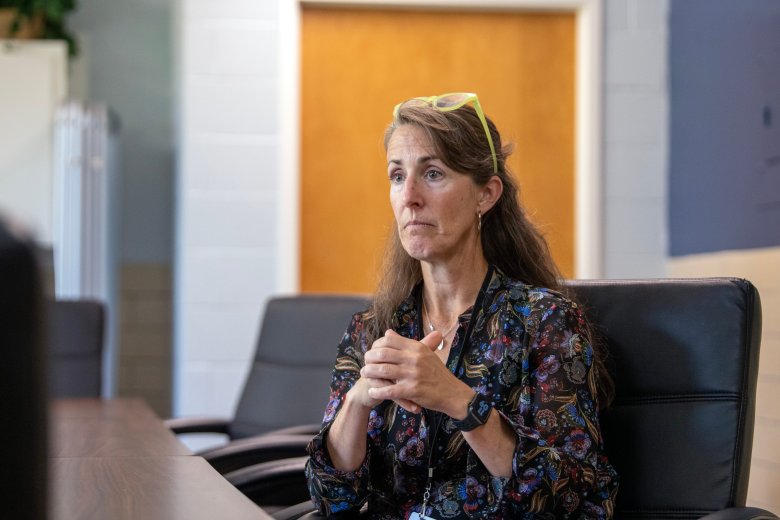
Bangor launches HIV case management program amid Maine’s largest outbreak
Bangor Public Health launched an intensive case management program this month to serve those impacted by the city’s HIV outbreak, which has led to 29 identified cases.
The program is funded by about $550,000 of Bangor’s opioid settlement funds. It will provide case management services like mental health care and rides to appointments for residents impacted by the outbreak, which has been ongoing since October 2023 and saw cases rise through this summer, said Jennifer Gunderman, director of Bangor Public Health and Community Services.
“We’re still dealing with an outbreak,” Gunderman said. “Yet I think what we’re trying to do is build longer-term systems so that we don’t all get burned out.”
Over the last two years, Bangor has become the site of Maine’s largest outbreak, with most cases identified among people who have used injection drugs or experienced homelessness in the 12 months before their diagnosis, according to data from the Maine Center for Disease Control and Prevention. Before late 2023, Penobscot County had averaged just two new HIV infections annually.
The intensive case management program will provide wraparound services like mental health care, housing assistance and substance use disorder treatment to people impacted by the outbreak. Gunderman said it will employ two case managers and a vehicle to transport people to and from appointments.
This is the first time the city’s public health department is running its own case management services, Gunderman said.
Gunderman said Bangor’s population needs a combination of programs and case management services, including ones that are close to home, so residents don’t fall through the cracks.
“We have been engaging with this population for a very long time, even before this outbreak happened,” Gunderman said. “So when the intensive case management (program) happened, it was just like saying to a person that we’ve known for a while: ‘Hey, we now have this other service that we can offer you.’”
The Regional Medical Center at Lubec previously handled case management services for Bangor, but the hospital terminated its Northern Maine HIV Program this summer, ending case management for about 140 people in five northern counties, according to Gunderman and MaineGeneral Health officials.
Bangor residents who had been on HIV case management for decades lost services in the middle of an outbreak, Gunderman said.
On Oct. 7, MaineGeneral Health’s Horizon program announced it would expand its HIV and AIDS support services to more counties, including Penobscot, to fill the gap.
The Lubec hospital and Horizon program are both longtime recipients of funding through the federal Ryan White Part C Early Intervention Services Program, which allocates HIV prevention and care dollars to states and communities.
After Lubec terminated its program, federal funding was awarded to MaineGeneral’s program to take on the additional counties, said Jennifer Riggs, MaineGeneral’s CEO of community care.
Riggs said the Horizon program integrates outpatient medical services with support services like mental health care to serve people who are low-income, uninsured or underserved.
“Ensuring that these services and the funding for them remain available to individuals is essential to limit the negative effects (of HIV and AIDS) in Maine’s local community members,” Riggs said.
Horizon will expand its coverage area to 14 counties, up from nine, and has already started transitioning some case management services over while building relationships with existing health organizations in those places, Riggs said.
Riggs said the program will work with Bangor’s health leaders on “prevention and testing, treatment coordination and other support services.”
Bangor Public Health has worked with a slew of community groups and organizations on expanding preventative HIV services, including distributing condoms and clean needles, making self tests available and helping people get on PrEP, or pre-exposure prophylaxis, a preventative medication taken by people at high risk for HIV infection.
Gunderman said the outbreak is likely larger than the 29 cases that have been identified and reported. She said it was made more intense because of conditions like people experiencing homelessness, living in outdoor congregate settings and struggling with substance use issues and mental health.
She said the outbreak should be a “wake up call” for the rest of Maine.
“Bangor is not the only community that struggles with that,” Gunderman said. “So I think that statewide, there should be an increased awareness and increased testing.”
First Appeared on
Source link






